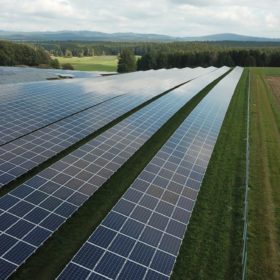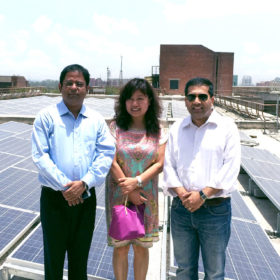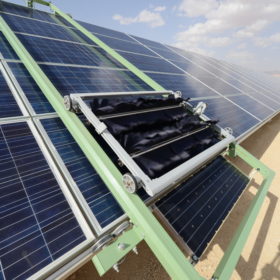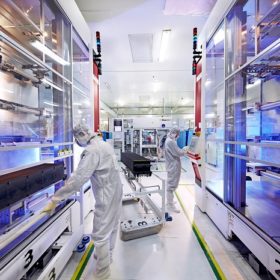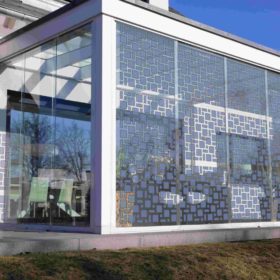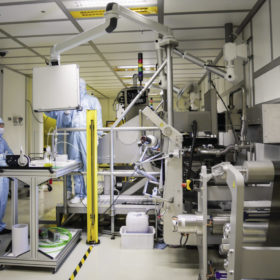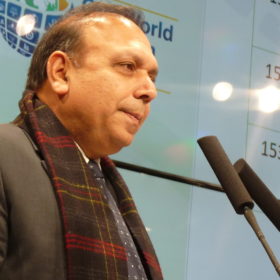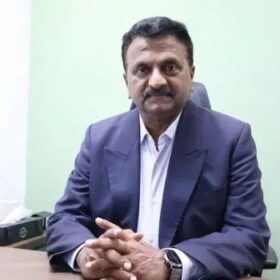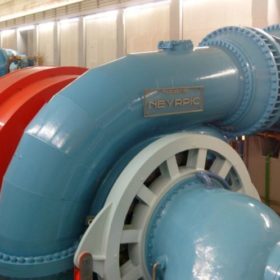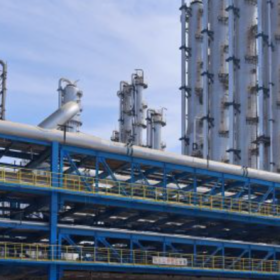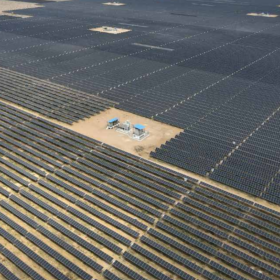LCOE from large scale PV fell 4% to $50 per megawatt-hour in six months
Analysts at Bloomberg New Energy Finance say the lowest-cost projects financed in Australia, China, Chile and the UAE in the last six months hit a levelized cost of energy of just $23-29/MWh and the best solar and wind projects will produce electricity for less than $20/MWh by 2030.
SunSource orders 105 MW of Trina Solar modules with 500W+ output
Trina Solar’s new Vertex series of bifacial modules have a conversion efficiency of up to 21% and can deliver more than 500W of power from the front surface.
CEL seeks technology partner for waterless solar module cleaning systems
The state-owned Central Electronics Limited seeks to empanel startups having the technology patent for waterless solar module cleaning system without any moving parts as its intends to manufacture such systems at its facilities.
Single‐walled carbon nanotubes for more efficient III‐V solar cells
Russian researchers have improved the efficiency of a thin-fim GaAs‐based solar cell by 0.9% by applying single‐walled carbon nanotubes as the topmost layer. The cell also showed a slight increase in the short circuit current density, from 16.9 to 17.9 mA/cm2.
BHEL tenders solar module supply for VTU, Karnataka
May 4 is the last date to submit bids for supplying 1130 quantities of 72-cell, 330Wp crystalline-silicon solar modules for Visvesvaraya Technological University. The modules are to be delivered within 45 days of the purchase order.
‘Free-form’ organic PV
French organic PV module manufacturer Armor said it began manufacturing free-form PV modules in early April. The new technology will allow the company’s ASCA PV film to be produced in a range of different shapes.
UK based Faradion to start sodium-ion battery manufacturing in India
The sodium-ion battery technology developer has bagged its first order from ICM Australia and is looking at India as the next destination for manufacturing with the initial target set as 1 GWh.
The long read: 2020 is the decade of perovskite PV
About 10 years ago, perovskite solar cells (PSCs) made their entry into the world of PV with a power conversion efficiency of 3.8%. Fast forward to 2020, and PSCs are the talk of the town, with a string of impressive laboratory achievements to their name. Global research efforts have shifted toward PSCs as efficiencies keep on getting thrashed on a regular basis. But is it too soon to say that the technology is ready for commercialization?
MNRE backs multi-pronged approach to support solar sector
The Indian government is working on the creation of a Rs 10,000 crore (US$1.3 billion) alternative investment fund to provide payments to PV developers.
Covid-19: Solar cell manufacturer CEL to make ICU ventilators, seeks partners
Central Electronics limited—India’s first silicon PV manufacturer—is looking to utilize its expertise and technical competency to ramp up the production of ICU ventilators in the country’s fight against Covid-19 pandemic. The public sector unit has invited global bids from ventilator manufacturers to select partners for production.
